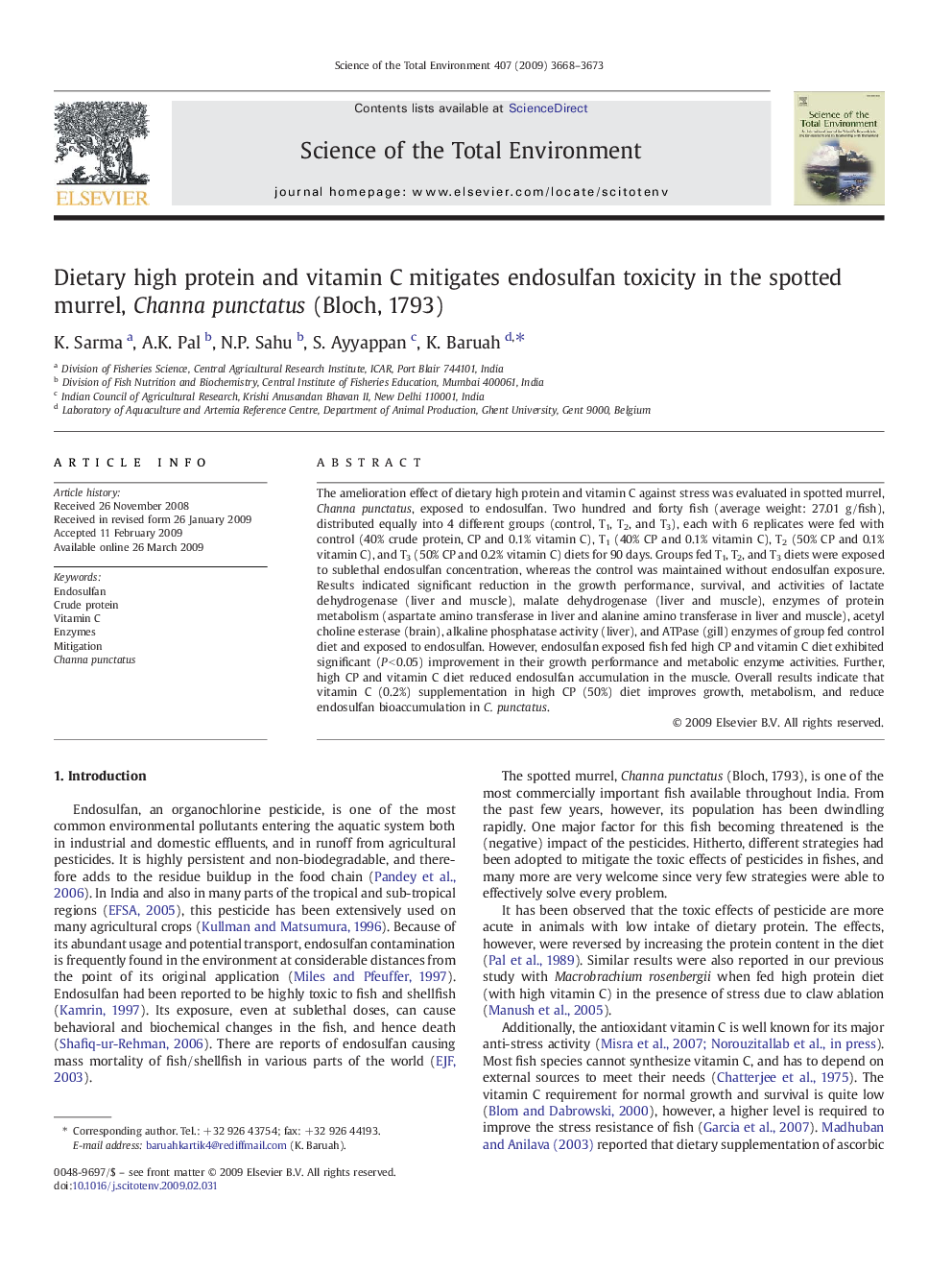| Article ID | Journal | Published Year | Pages | File Type |
|---|---|---|---|---|
| 4431811 | Science of The Total Environment | 2009 | 6 Pages |
The amelioration effect of dietary high protein and vitamin C against stress was evaluated in spotted murrel, Channa punctatus, exposed to endosulfan. Two hundred and forty fish (average weight: 27.01 g/fish), distributed equally into 4 different groups (control, T1, T2, and T3), each with 6 replicates were fed with control (40% crude protein, CP and 0.1% vitamin C), T1 (40% CP and 0.1% vitamin C), T2 (50% CP and 0.1% vitamin C), and T3 (50% CP and 0.2% vitamin C) diets for 90 days. Groups fed T1, T2, and T3 diets were exposed to sublethal endosulfan concentration, whereas the control was maintained without endosulfan exposure. Results indicated significant reduction in the growth performance, survival, and activities of lactate dehydrogenase (liver and muscle), malate dehydrogenase (liver and muscle), enzymes of protein metabolism (aspartate amino transferase in liver and alanine amino transferase in liver and muscle), acetyl choline esterase (brain), alkaline phosphatase activity (liver), and ATPase (gill) enzymes of group fed control diet and exposed to endosulfan. However, endosulfan exposed fish fed high CP and vitamin C diet exhibited significant (P < 0.05) improvement in their growth performance and metabolic enzyme activities. Further, high CP and vitamin C diet reduced endosulfan accumulation in the muscle. Overall results indicate that vitamin C (0.2%) supplementation in high CP (50%) diet improves growth, metabolism, and reduce endosulfan bioaccumulation in C. punctatus.
